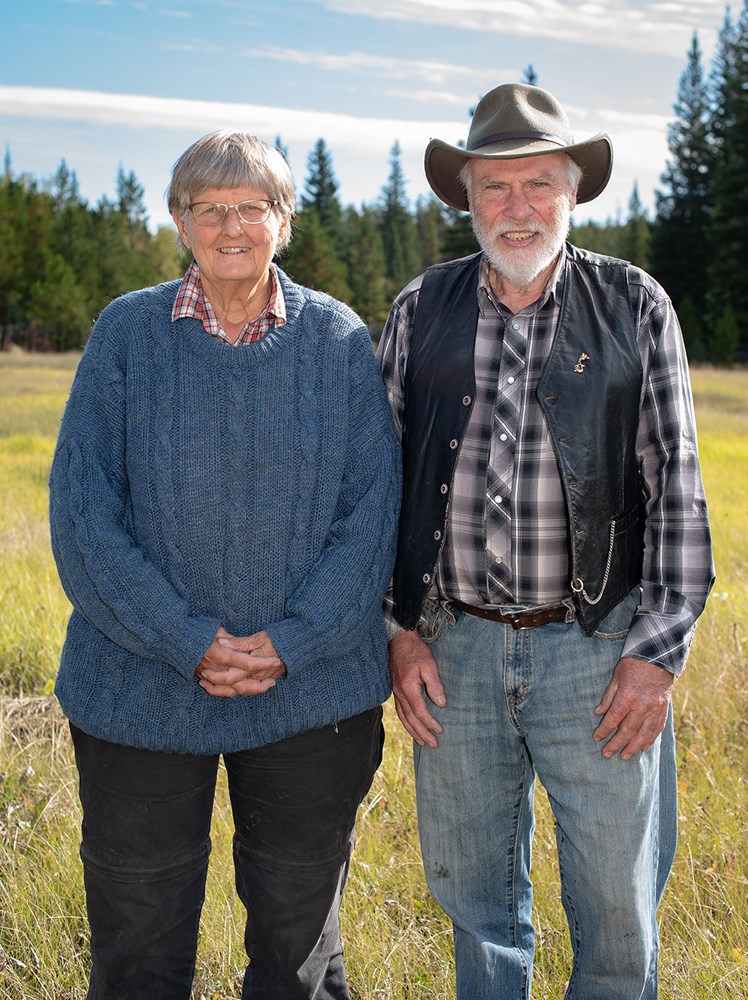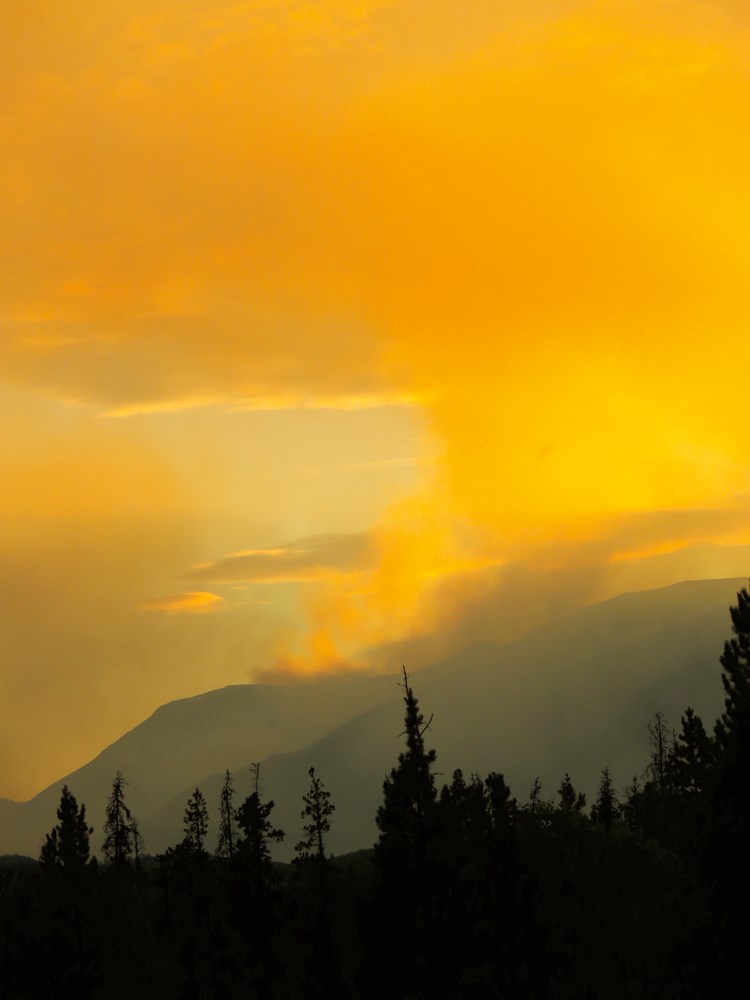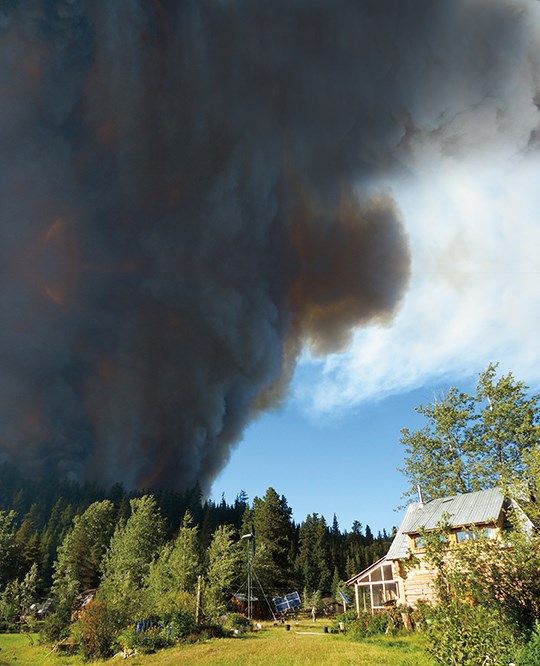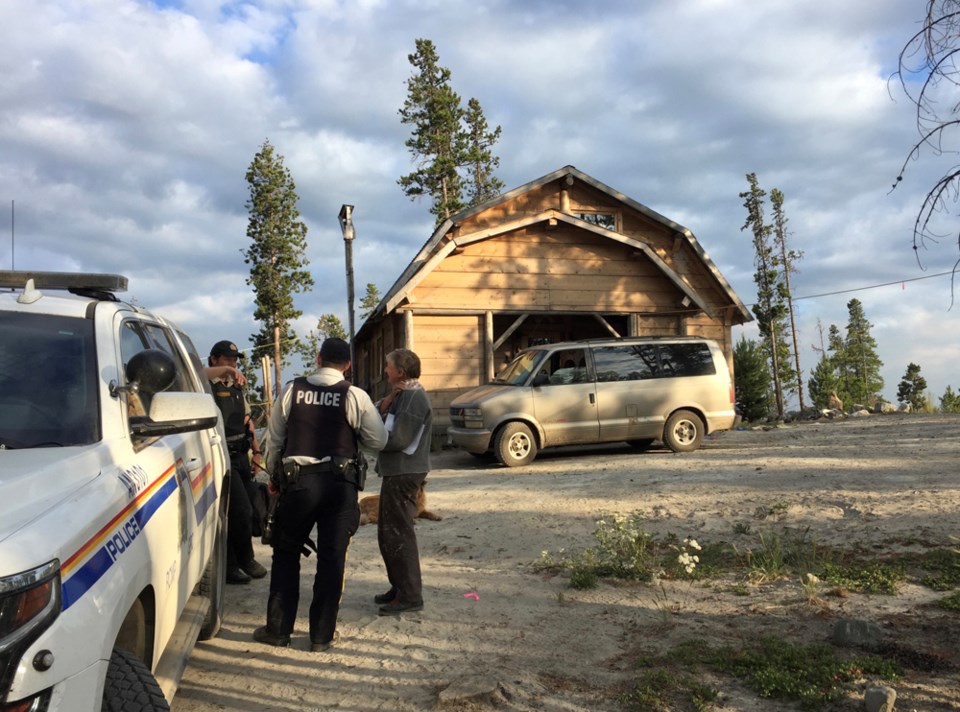Author Chris Czajkowski doesn't suffer fools, wildfires — or not so bright reporters — gladly. She is a no-nonsense type of person and it serves her well. She has lived in the remote wilderness for the better part of three decades.
She is the author of 12 books including Snowshoes and Spotted Dick, A Mountain Year, A Wilderness Dweller’s Cookbook, Ginty’s Ghost, Harry (all Harbour Publishing) and Lonesome (TouchWood).
Her latest book, Captured by Fire: Surviving British Columbia's New Wildfire Reality, which she co-wrote with homesteader Fred Reid, focusses on surviving the 2017 wildfire that threatened her home in Kleena Kleene, a three and a half-hour drive west of Williams Lake.
Czajkowski is at the Squamish Public Library on Monday, Oct. 28 at 6:30 p.m. for an illustrated talk about what she faced.
In advance of her visit, The Chief caught up with Czajkowski by phone for a chat.
What follows is an edited version of that conversation.
Q: You have lived in the Williams Lake region for 40 years, so how surprised were you at the 2017 fire season, which, as your book notes, saw more than 200 fires and set records for the largest total area burned and the largest number of total evacuees in one fire season?
A: It was certainly bigger than we had ever had before. But, I have had experience with a lot of other wildfires. I was evacuated from my mountain area twice. The worst was the 2004 Lonesome Lake fire. It didn't come that close to my place, but when you are way out in the bush, a lot of the time it is too smoky to fly, so you have to choose a time that is right to get out. After a month, that fire was on a southwest, northeast valley. The wind got behind it at just the 'right' time and it travelled 30 kilometres in two days.
So in 2017, I knew how dangerous those wildfires could be when the wind got behind them.

Q: Early in your book and in the wildfire, you talk about being in William's Lake getting your van fixed and as the smoke rose, locals seemed a bit oblivious to the danger. Is that one of the biggest takeaways in your view — to take wildfires serious now?
A: Yes, probably. I suppose they just thought, "It will be taken care of." And most of us did think that way, that it would never blow up quite so big.
Q: You know so much about wildfires that you share in the book. I had no idea what pyrocumulus clouds were, for example. Did you research a lot for the book, or did you know a lot of this before?
A: When you are involved with wildfires, you learn things. I like words, too. pyro means fire and cumulu is clouds, right? I knew this before I started the book.
Q: In Squamish, the fire season was calm this year, but we were impacted by smoke in other years and of course wildfires are a risk for us here. What can residents here learn from your experiences?
A: Be prepared. In the Chilcotin, most of us have tons of dried food, we don't have to rely on going to stores, necessarily. A lot of us have alternative power systems. In the city, if you are evacuated and there's no power, you can't do much. So, in a town or city, you have to leave, it would be insane to stay.
Q: What was the scariest thing about the wildfire you faced?
A: The worst part is not knowing what is going to happen next. With a flood or an earthquake, it is a day or two of trauma and then you deal with it, but with a wildfire, you don't know what will be happening from one minute to the next. Also, the lack of communication from the wildfire service was hard.
For the best information I depended on Fire Data in Google Earth, the NASA fire information and Windfinder. The direction of winds is important and the severity of the winds too when it comes to wildfires.

Q: What is your perspective on the role of climate change in the increase of wildfires?
A: Certainly the glaciers are retreating. When they have a lot of fires then the glaciers retreat more. The smoke lands on the ice and the darkness encourages the melting and of course the fires themselves creates a lot of carbon and the helicopters used create a lot of carbon. There were helicopters all day, every day working away at the fire, sometimes planes too. That is throwing environmental nastiest into the air — but I want them to protect my home, so what can I say?

Q: You are currently on book tour, staying on Vancouver Island. I know from talking to you before, coming to urban areas isn't your favourite thing. How is it being in civilization for the tour?
A: It is not civilized here. People seem to think we aren't civilized out there. We are perfectly civilized out in the bush. We just don't have all of the conveniences you do.
Czajkowski has a blog, which she writes using her solar-powered satellite internet access. Go to www.wildernessdweller.ca for more about this book, her life and history.



